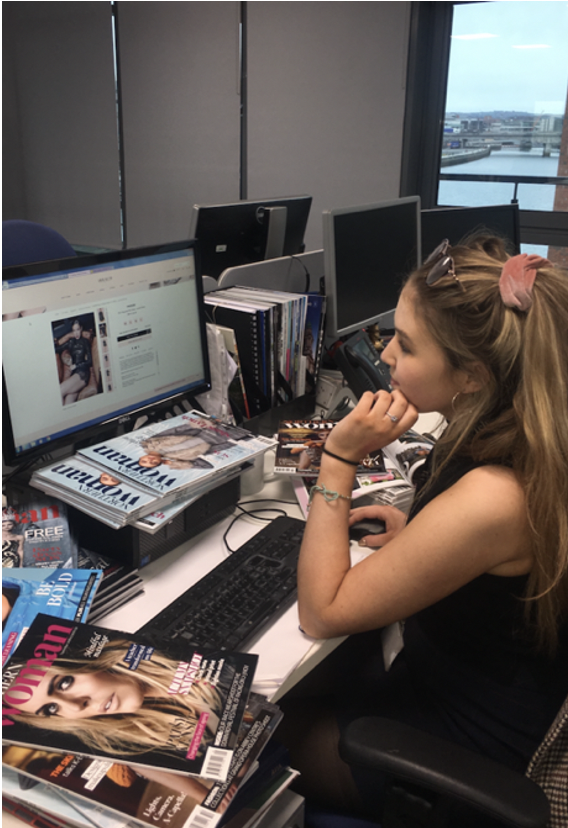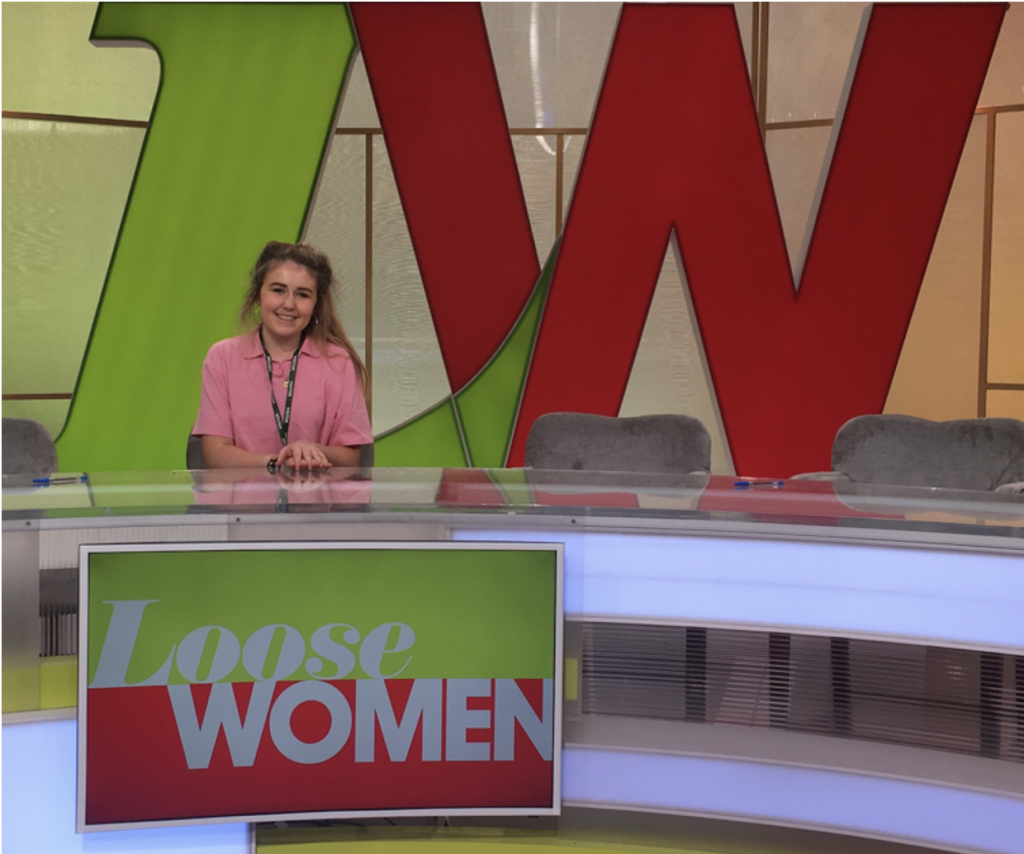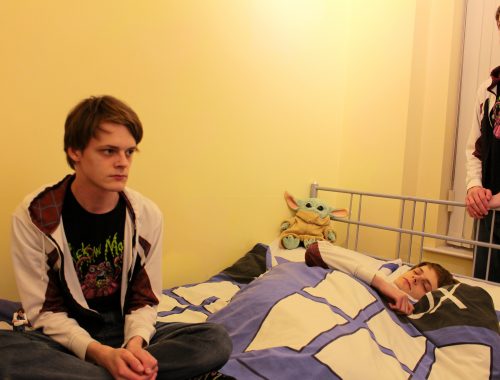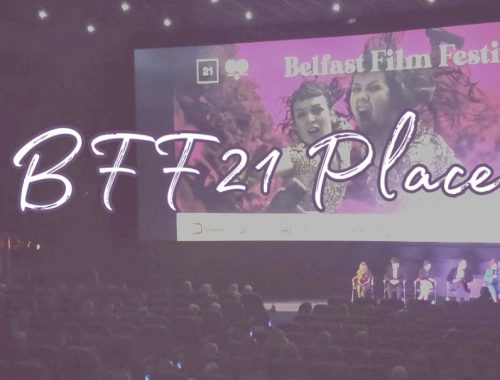The importance of building your employability through work experience
Since I was young, I’ve always had a love for media and the broadcasting industry. There wasn’t one aspect in particular I was attracted to. I’d known I wanted to be involved in story telling through media. I was delighted when I secured my first paid job in the world of film quite unexpectedly. During this job, I’ve learnt that every member of a film production crew is vital. Therefore, recruitment for a production assistant on Dungeons and Dragons was urgent. Selecting a suitable candidate for the role often happens rapidly. There is a crucial need to meet the production’s shooting deadlines. There wasn’t an extensive recruitment process. Careers in Media and Film: The Essential Guide acknowledges that “many of the jobs you will be hoping to find are not even likely to be advertised in the first place. This is because media jobs are frequently filled by ‘word of mouth’.” (Mazierska, Ewa, Gregory, Georgina and Healy, Ros, pg17) This was certainly true in my case as I heard about the job through a peer on my course. I didn’t have to do an interview. Instead, I relied on my CV and past experiences to get me the job. I found myself a mere three days later working on my first feature film, Paramount’s Dungeons and Dragons. Though I was nervous about the scale of the production, I was delighted to get a first-hand experience of the film industry in Northern Ireland.

According to McMillan and Meyers, “Reflection can be understood as a process where and individual evaluates an event or experiences to arrive at a deeper understanding…” (McMillan, Meyers, pg30) I used the process of reflection in order to learn how to work more efficiently and to be confident in my own abilities. I am conscious of the actions I had previously taken to broaden my own experiences as a young woman in the broadcasting industry. I resonate with Borton’s model of reflection.

I’ve considered what happened and the ways in which I sought more experience. I pursued securing experience with broadcasters like BBC, RTE and ITV. I emailed producers and production co-ordinators for work experience, often hearing no feedback. However, I didn’t let this deter me. I wrote an online blog to improve my skills in communication and website design.
I also worked voluntarily with Northern Women’s Magazine. Finally, after sending a lot of emails, I got the response I’d always wanted. The head of ITV’s day-time programming, Emma Gormley! She offered for me to travel to London for a week’s work experience with Loose Women. I was only seventeen and I remember being so excited. I could hardly believe my eyes when I read the email.

I analysed what these experiences truly meant in solidifying my success. This is the So what stage of the model. When evaluating how these decisions had shaped my career path, I decided that these opportunities happened as I relentlessly contacted people to build my own network. “networking allows you to present yourself in a much more personal way than a CV or standard job application form can ever do”. (Mazierska, Ewa, Gregory, Georgina and Healy, Ros, pg52) There was a lot of work put into drafting a CV to make it interesting, personal and professional. However, I accredited my experiences for securing me the PA job. The placements in the TV and radio industries helped me to develop my skills as a runner. I made contacts who advised me on what degree to study and how to develop my industry skills. I was familiarised with the fast-paced studio environment. In hindsight, I’m glad that I had taken initiative to build my employability. This heavily contributed to the opportunity I was presented with- working with Paramount.
The final stage of Borton’s model of reflection is Now what? The model has prompted me to think about my future and set out a course of action for furthering my career. I continue to be proactive in my pursuit of success in the broadcasting industry. I’ve sought out work as a chaperone on Derry Girls and hosted on Here’s The Craic Podcast through messaging the producer. I used the skills I had learnt in work experience in being an efficient production assistant. Something I learnt shadowing a runner on RTE was always to arrive and leave before everyone. This ensures you’ve fulfilled every task that may arise as a PA.
Though I had set out a course of action to successly perform in my role, I had a lot to learn when I was first hired on D&D. My first discovery was how fast paced the life of a Production Assistant is. I worked 12 hours a day five to six days a week. Although I felt extremely grateful to be working on such an amazing project, inevitably I was also extremely tired and stressed. I related to Friedman, who explains that the role can be challenging “This job is a commitment not be taken lightly…It is intense, hard and sometimes emotionally draining”. (Friedman, Joshua, pg3) The job opportunity arose while I was still in university. Therefore, I was balancing studying with a full-time job. I was often stressed that due to my young age I was not as competent or experienced as my colleagues. With the experience I’ve gained, I’ve realised it’s best to shadow your colleagues to learn more about the inner workings of the job. I was lucky enough to have another PA to work alongside. She taught me a lot. The role of a production assistant is a vast role with many responsibilities. I have learnt that the production assistant is much more than a gofer. In reflection, I’ve realised you have to be very relaxed and confident to prioritise tasks that are most important to you.
The beginning of this module was interesting for me. Although I didn’t have to draft a CV, I felt that my previous unpaid placements were an instrumental aspect of developing my skills in the module. These placements cemented my experience to take on the Production Assistant vacancy. However, I still had a lot to learn… an issue which I will explore in a later blog post…
Works Cited-
Mazierska, Ewa, Gregory, Georgina and Healy, Ros, Careers in Media and Film: The Essential Guide, Sage, 2008 pg17, 52
McMillan, Meyers, Reflective Thinking, How to improve your critical thinking and reflective skills, Pearson 2013 pg 30
Reach, touch, and teach, Borton, Terry, Hutchinson 1970
Friedman, Joshua, Getting it Done: The Ultimate Production Assistant Guide, Michael Wise Productions, 2011 pg3
You May Also Like

AAAH or (Why Tom sucks at selling himself)
25 November 2021
First Day Fears
24 November 2021
